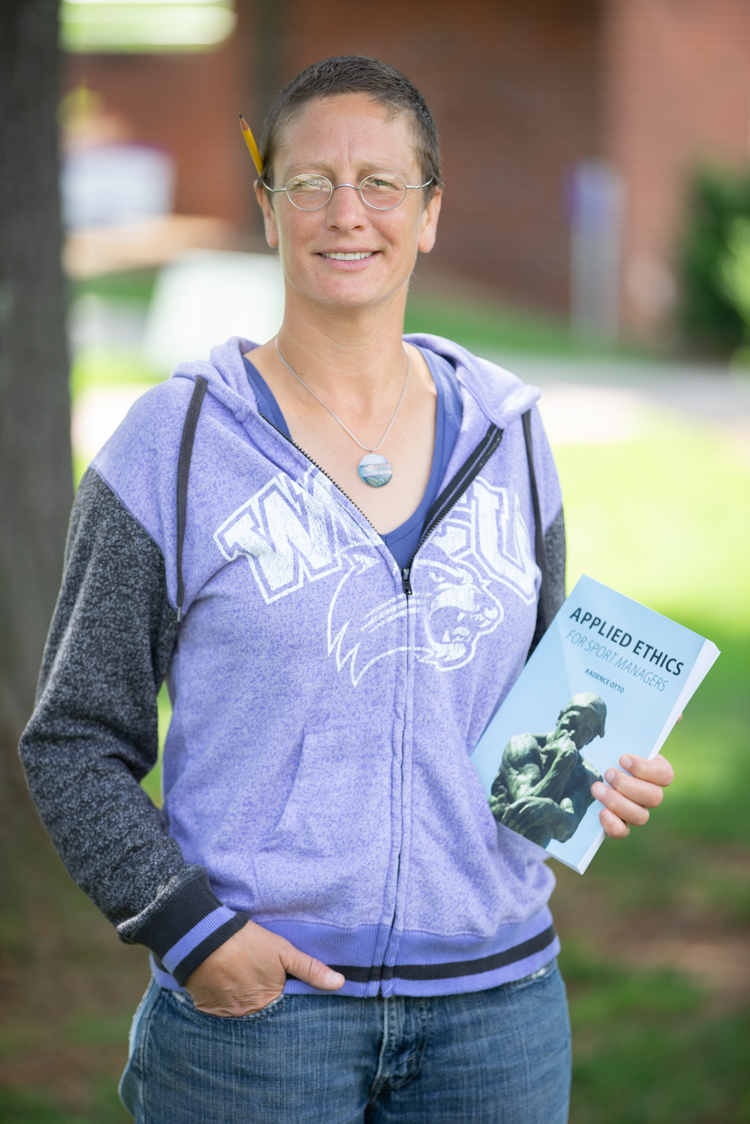Sport management professor Kadie Otto writes her first textbook
Kadie Otto used to think she would do anything in order to take a sabbatical. That was until the Western Carolina University sport management professor used a recent scholarly leave assignment to write a textbook.
Otto was approached by a sport management colleague who thought she might be interested in tackling the project of writing a textbook. At the time, Otto was trying to get a scholarly leave assignment and this proved to be just what she needed to make that happen. Otto had no idea what she was getting into.
“That was a mistake because it was a massive undertaking,” Otto joked. “Truth be told, if I knew what went into it, I would not do it again because it’s a lot of work, a tremendous amount of work. It’s such a different type of writing. We usually write journal articles as faculty. To write a textbook in the language that students might actually read is very difficult. You have to bring everything you know down to a level that’s easier to understand.”

Kadie Otto
Otto succeeded and her textbook, “Applied Ethics for Sport Managers,” is now available through Carolina Academic Press. The 208-page soft cover book features short chapters and is student-friendly and written in a conversational tone.
The book aims at heightening the reader’s awareness regarding the importance, responsibilities and challenges of becoming a complete sport manager, which is someone who evolves from a manager of sport to a leader of sport by operating professionally, ethically and socially responsible.
“I tried to write it in a conversational fashion with a lot of questions that might stimulate their interests,” Otto said. “After teaching for 15 to 16 years, I got to know that the students are not likely to read one of these massive hard cover texts. This is not intimidating.”
The book’s cover features a picture of Auguste Rodin’s sculpture, “The Thinker,” which was Otto’s idea.
“I think it gives some legitimacy to our field of sport that’s often sort of viewed as nonacademic, when really we drive a lot of change in society, if you really think about it,” Otto said. “We can drive social change or ethical change, through sport. I wanted to give it a seriousness of the significance of our field.”
Otto’s area of research revolves around corruption in big-time college sports, with an emphasis on the ethical angle. Over time, Otto said she has realized that the ethical angle impacts the social culture.
“What I felt my contribution might be is why not be a part of bringing up the next generation of sport managers by really making it very clear that you’re not just a manager, you’re a leader,” she said. “What I tried to do with the book is get them to see that it’s one thing to manage sport, but it’s another thing to be a leader. A leader in sport is someone who operates ethically and sees sport as a vehicle for social change. That’s sort of the spirit of the book.”
Otto’s book will be used in her “Sport Ethics” class. It also may be used as a supplemental textbook in her graduate level “Critical Issues In Sport” class.
“After all that stress, I have to admit I’m pretty darned pleased with it because I think it’s readable for undergrads,” Otto said.

